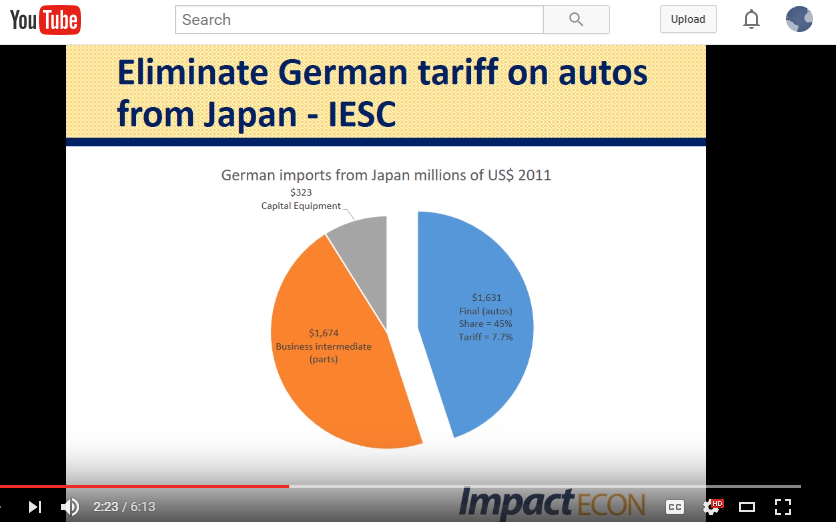ImpactECON report on the impacts of reversing NAFTA was cited in the Wall Street Journal
As concerns rise about the demise of the new NAFTA negotiations, the Wall Street Journal, CNBC, CNN and the New York Times have cited ImpactECON’s working paper “Reversing NAFTA: A Supply Chain Perspective“. Here we try to answer a few recently asked questions.
Questions and Answers on the Impact of Reversing NAFTA
What is the impact of reversing NAFTA on the US economy?
Real GDP is estimated to decline by 0.09 percent in the next 2-3 years. Investment is estimated to decline by 1 percent, which means that growth will fall further in the long run.
What is the estimated impact of reversing NAFTA on US employment?
US employment is estimated to decline by 256,000, with many more workers having to relocate to other industries to find jobs. This figure assumes that skilled workers are willing to accept a decline in their wages, if not then US employment could decline by over 1,000,000.

